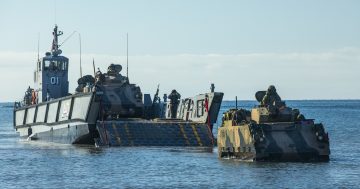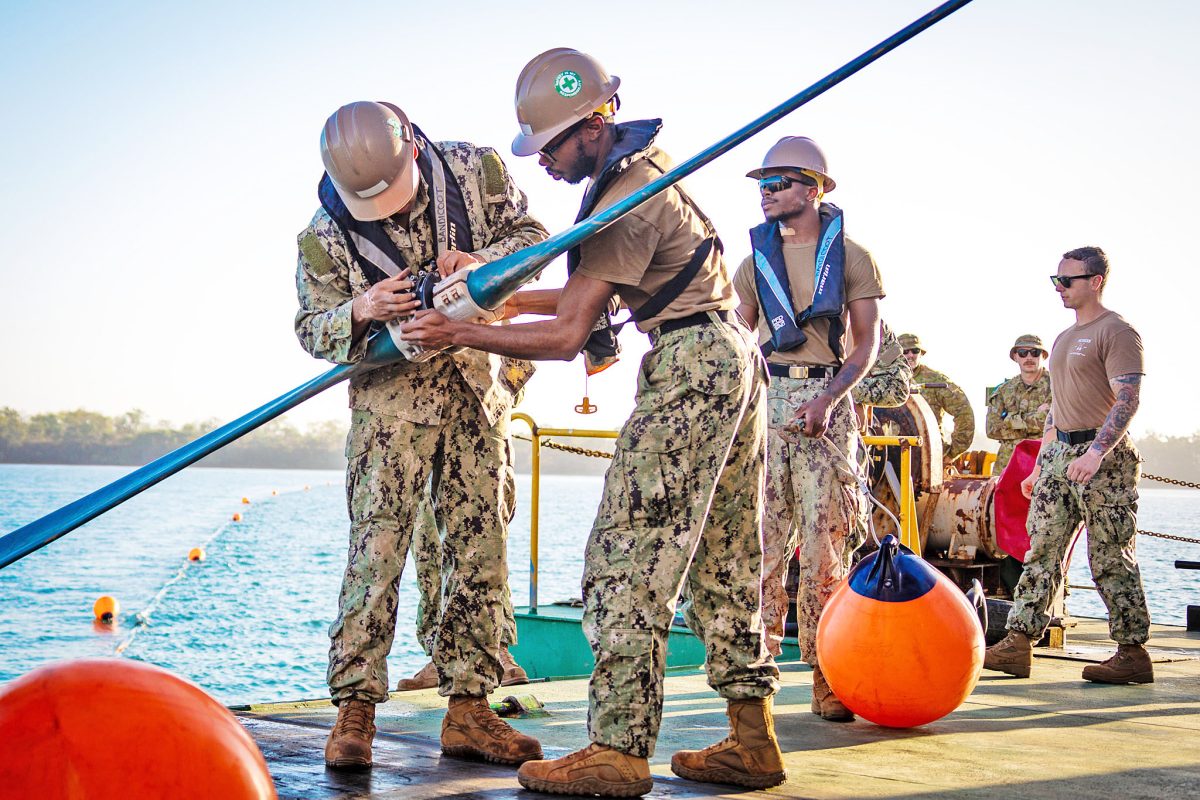
Seaman Boatswain’s Mate Qwante Huggins (R) and Boatswain’s Mate 3rd Class Joshua Banks, both assigned to the San Diego-based Amphibious Construction Battalion 1, work together to affix the buoy connector aboard the commercial Australian vessel Bandicoot during Talisman Sabre 23 in Weipa.
Dodging the local crocodile population was high on the priority list for a squad of US soldiers sent to Cape York Peninsula last week for a unique assignment.
As part of Exercise Talisman Sabre, a biennial event designed to test the interoperability between allies, the US Army and Navy sent around 200 soldiers and sailors to the mining town of Weipa to run the specific mission.
Sleeping in “five-star military accommodation” at RAAF Base Scherger, a bare base that was once used as a detention centre for refugees, the Americans had no qualms with being sent to remote Far North Queensland.
And their task, while mundane to many, could be essential if Australia ever goes to war in the Asia-Pacific region.
The mission was named Joint Petroleum Over-the-Shore (JPOTS), which simulated running fuel from the Port of Weipa to RAAF Base Scherger.
And while they didn’t run a pipe all of the way to the base and used water instead of diesel, it was still considered a meaningful task.
“The purpose is to demonstrate proof-of-concept so that, if needed, the joint force could use the same system to bring fuel ashore,” Captain Clovis Vaughn, who led JPOTS, said.
The Riotact‘s sister publication Cape York Weekly was invited to observe parts of the exercise on Saturday (22 July), which was conducted near the Aboriginal community of Napranum, about 10 minutes from Weipa.
The Americans booked a civilian barge to be anchored up in the Embley River, carrying more than 500,000 litres of fresh water to be pumped ashore.
Starting in the dark, the only sounds in the air were of a gas-powered device that sent shockwaves through the water to deter crocodiles.
Using a tender, the troops ran a hose from the barge to the shore, which was then pulled to higher ground in a classic tug-of-war style by a dozen men.
It was then connected to a bladder to build pressure and eventually run through a series of pipes stretching almost 5 kilometres.
“The majority of the pipe is surface laid for expeditionary purposes. The whole pipeline was laid in two days, demonstrating the capability of how expedient the operation can be completed,” Captain Vaughn said.
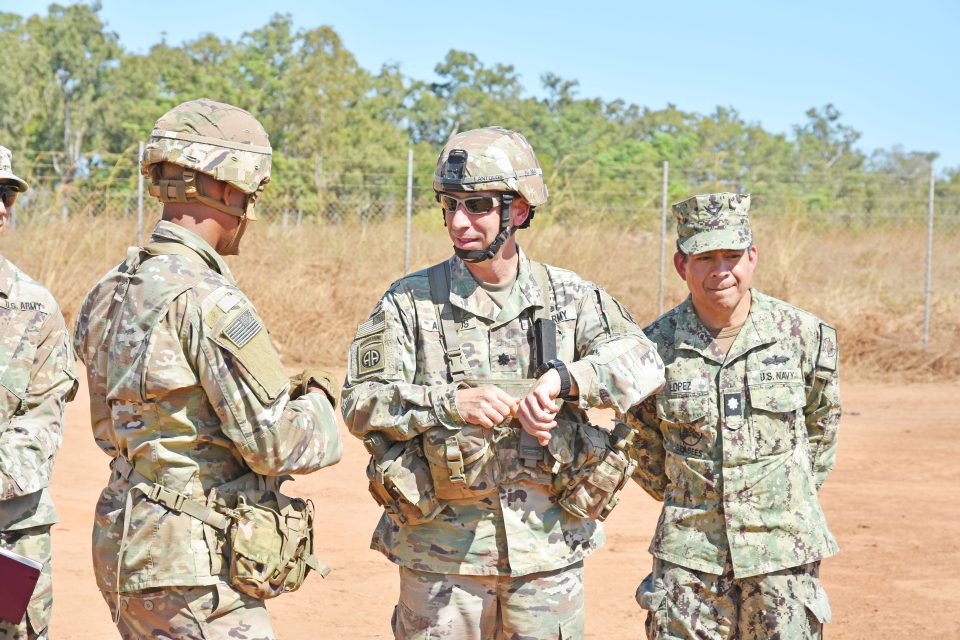
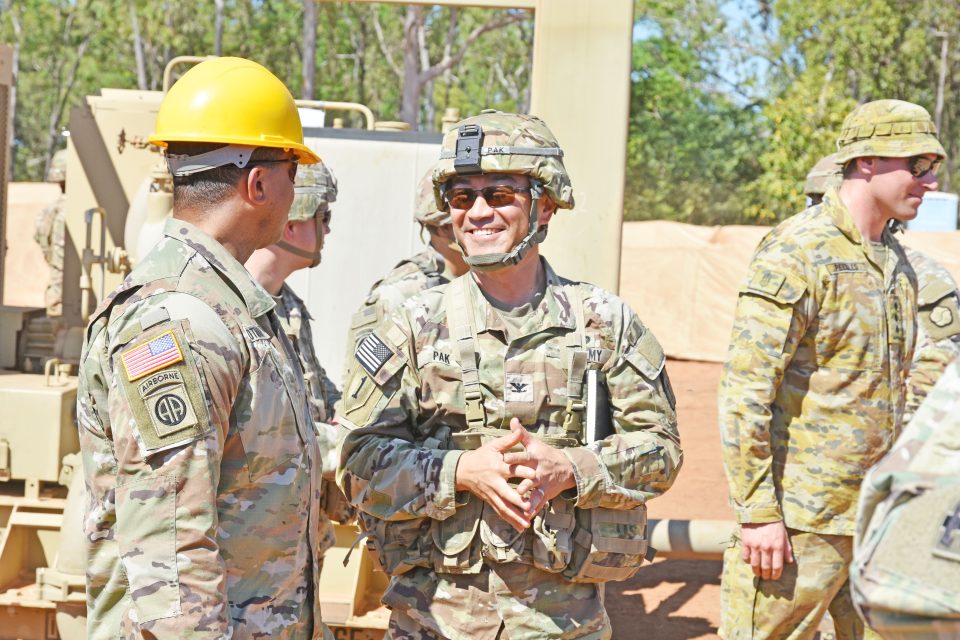
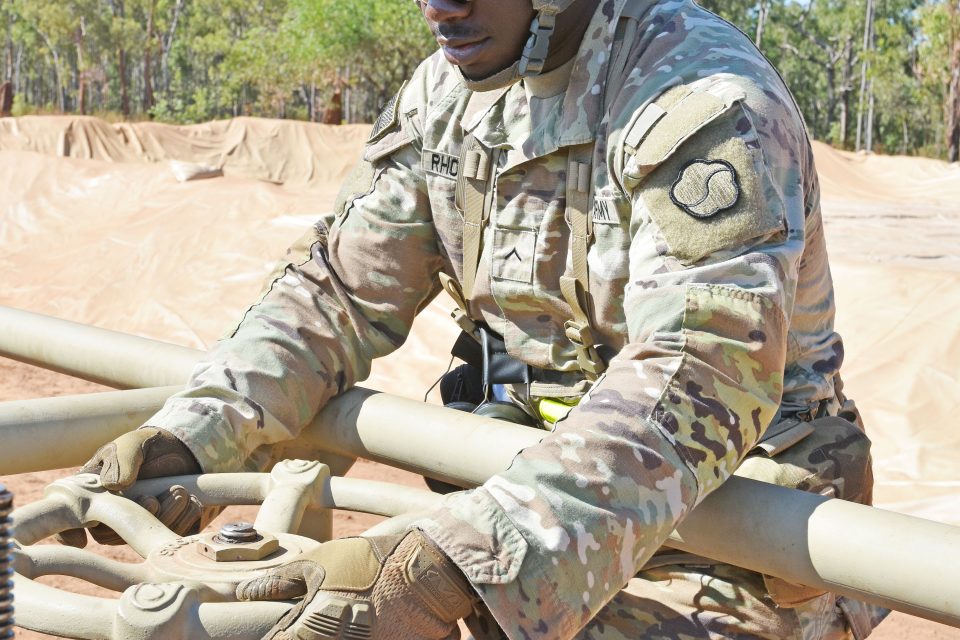

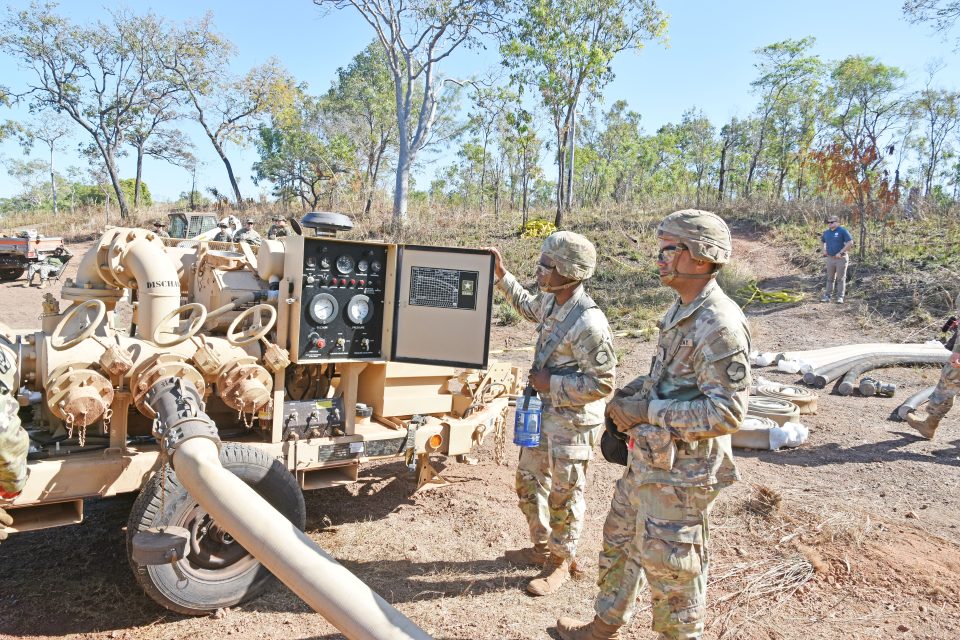
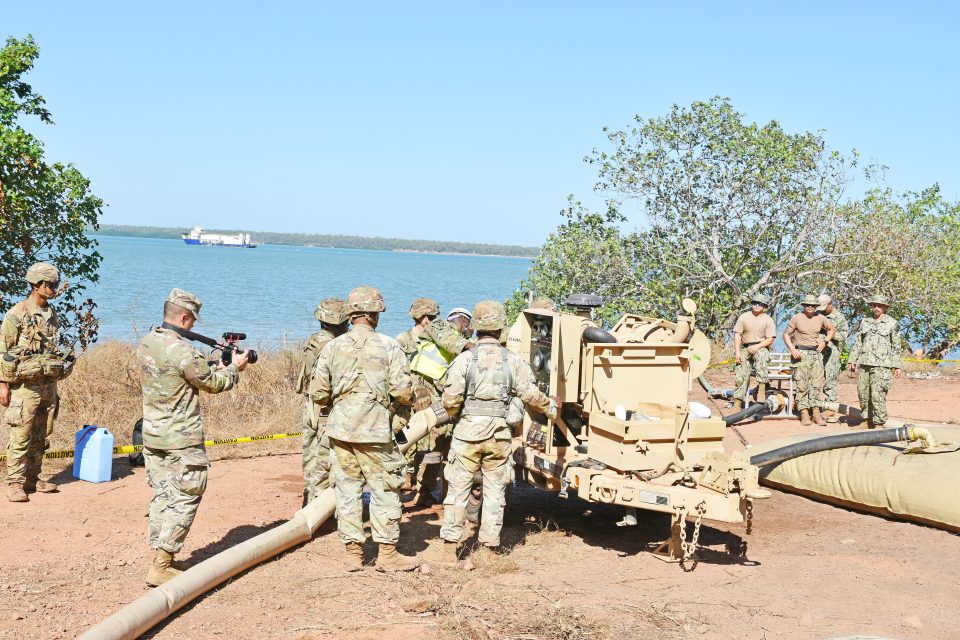

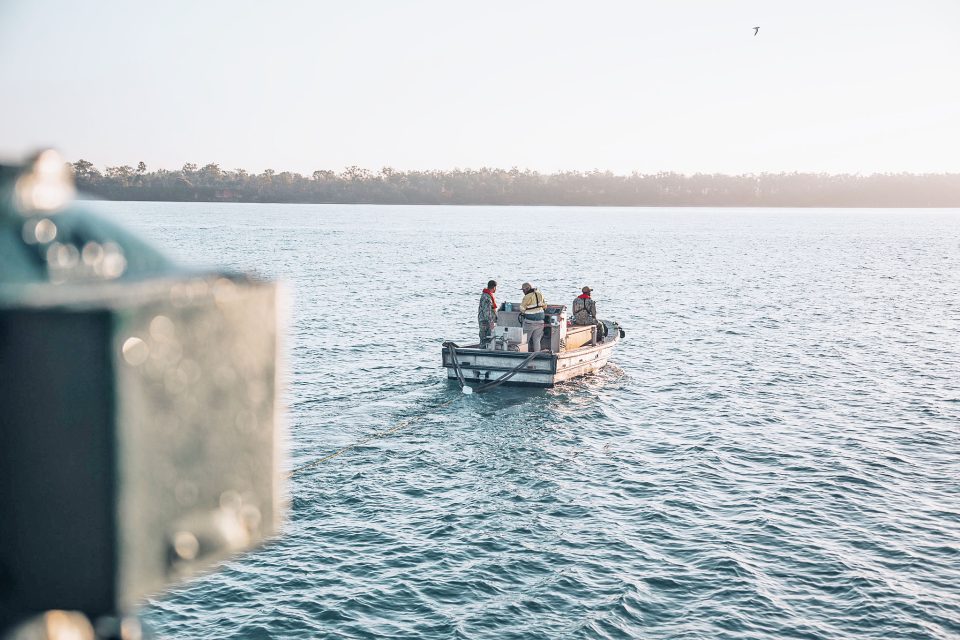

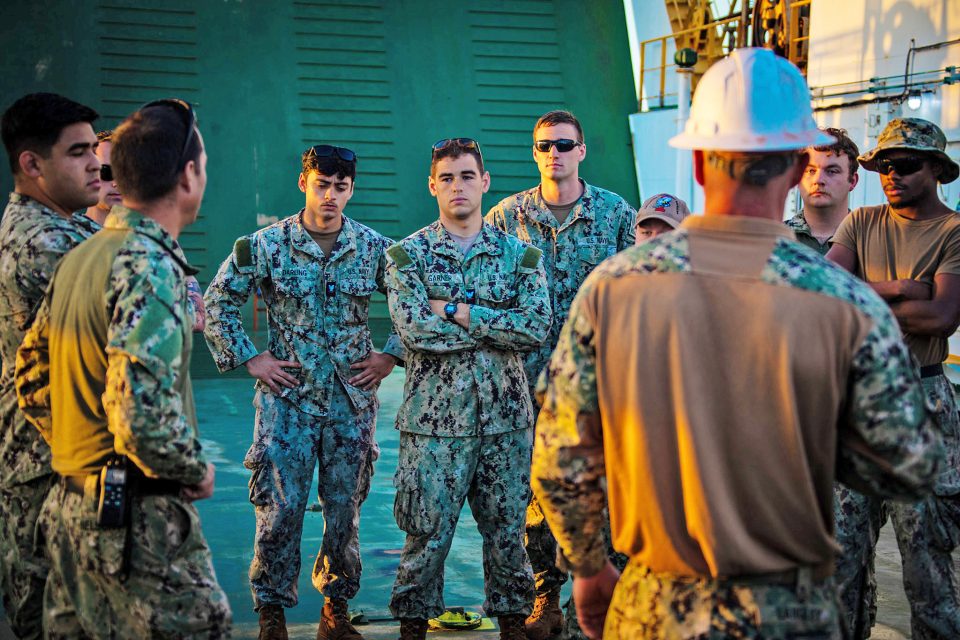


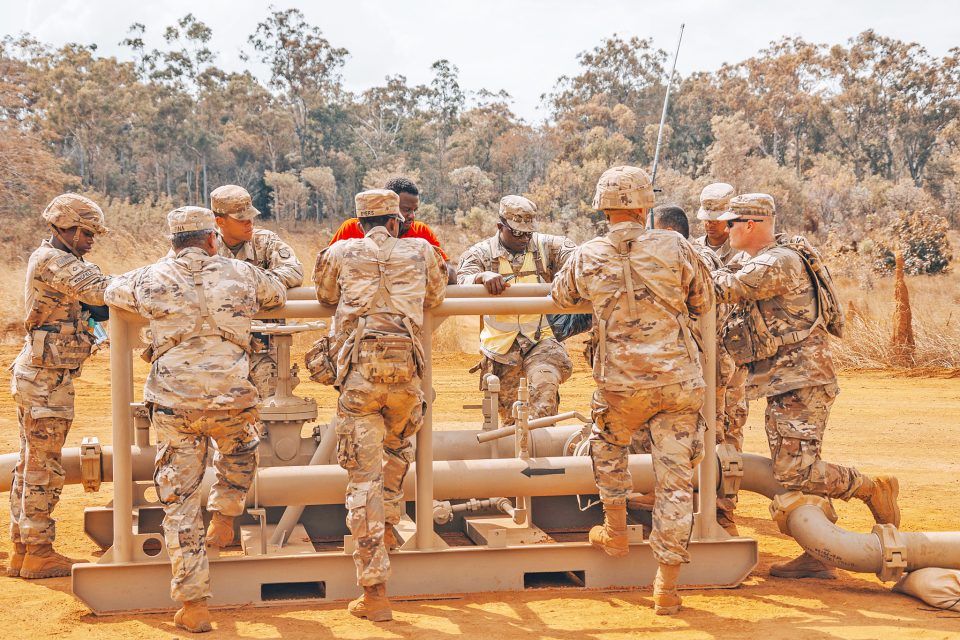

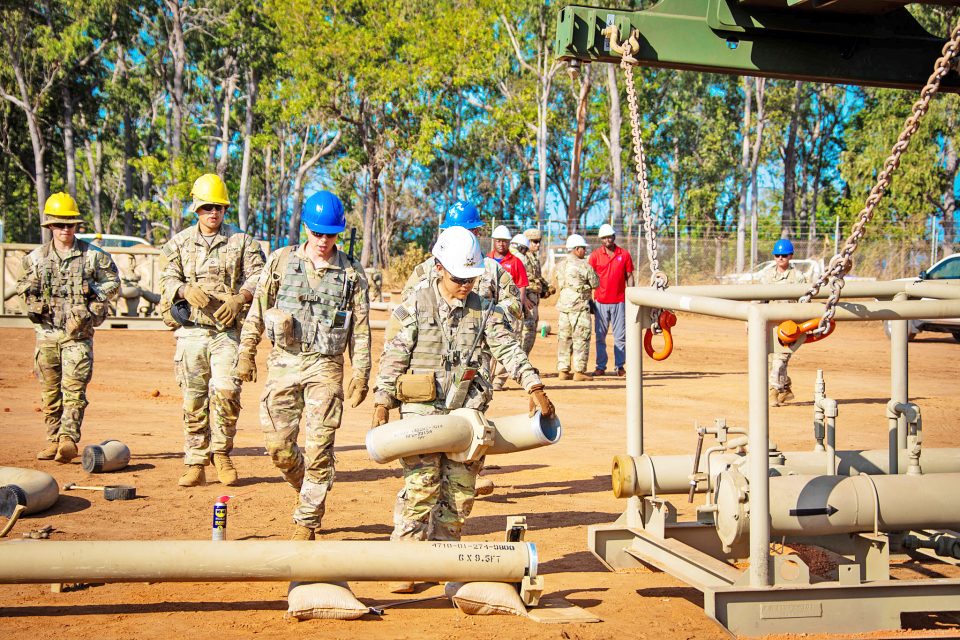

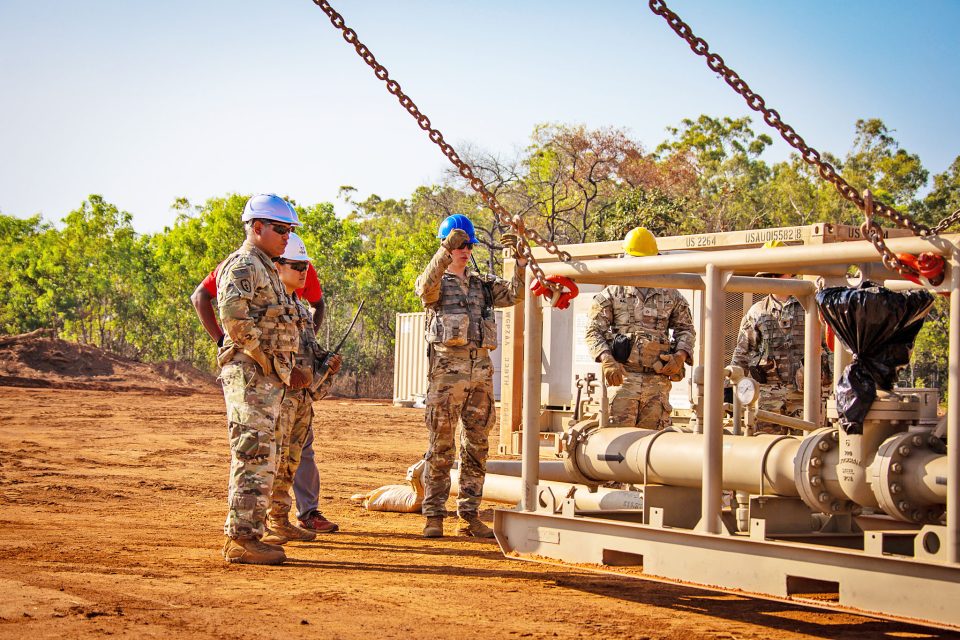
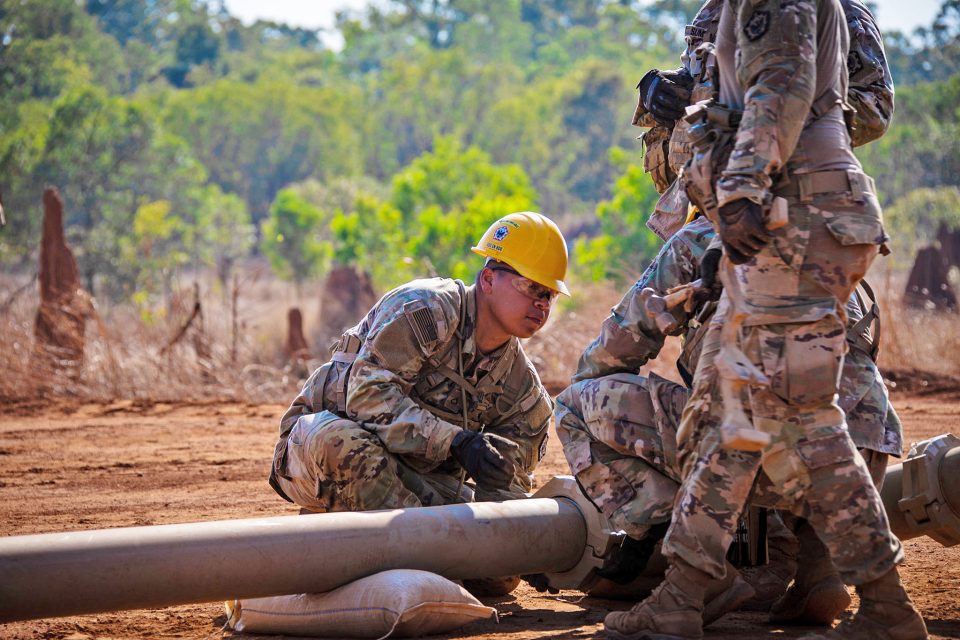
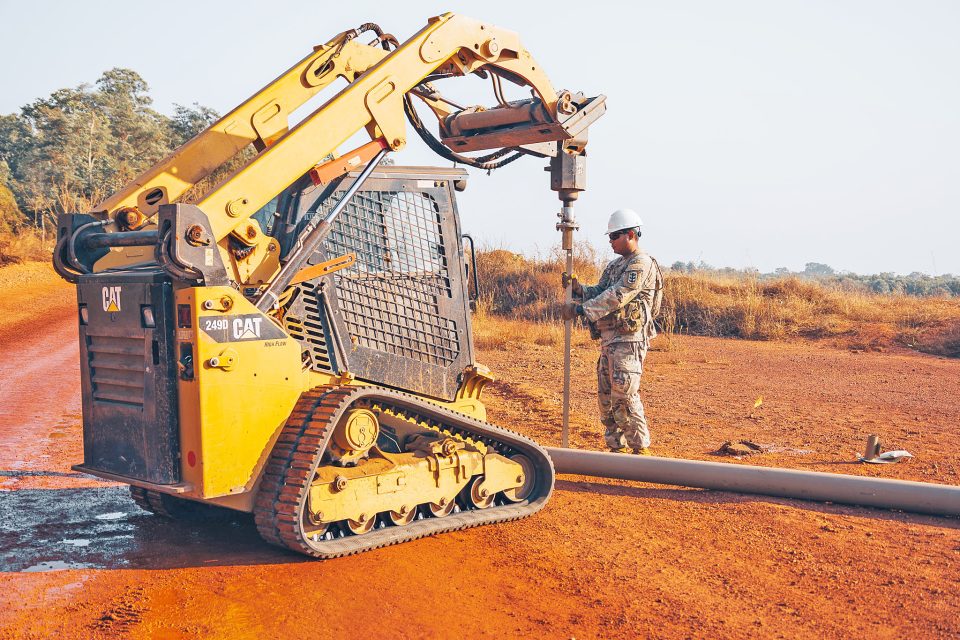
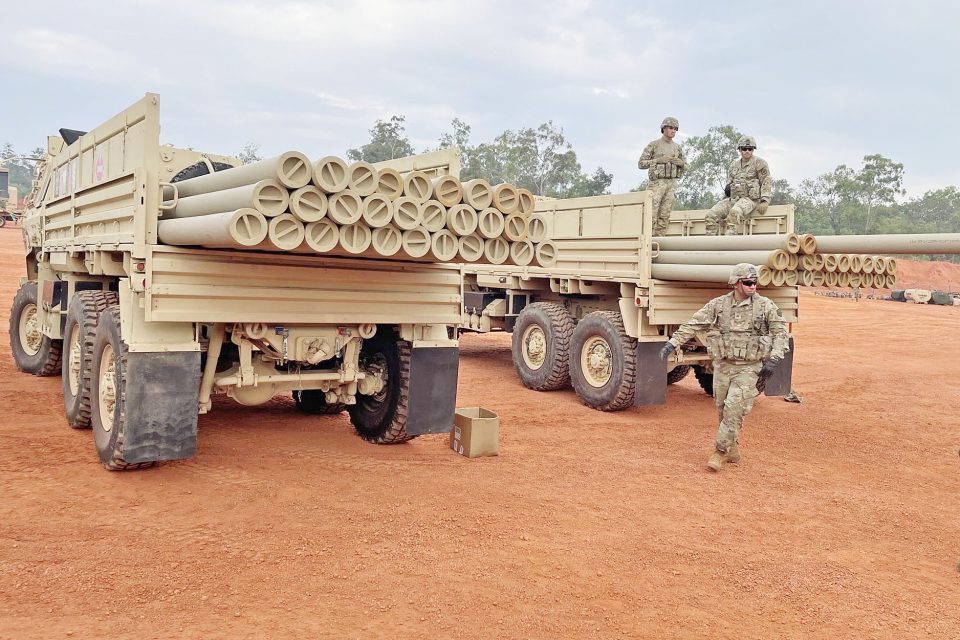
“Just a few portions were buried to allow vehicles to drive over, otherwise everything was above the ground. Each piece of pipe is 19 feet (5.8 metres) and, impressively, it was all laid by hand.”
The exercise was considered completed on Saturday afternoon after the water was successfully pumped through the pipeline.
Captain Vaughn said while it was mostly Army personnel involved in JPOTS, they did receive some support from the US Navy, as well as the local 51st Battalion.
“Bravo Company of the 51st came out and helped provide some additional support with crocodile watch and all that,” he said.
“There’s definitely a healthy concern – or is that appreciation – for the crocodiles.
“We’ve only seen a couple of them around the port.”
While the troops stayed at Scherger for the duration of the mission, the Weipa economy benefited from their visit.
Both local hire car companies were kept busy, while restaurants and food vendors also reaped the rewards.
Original Article published by Matt Nicholls on Cape York Weekly.












